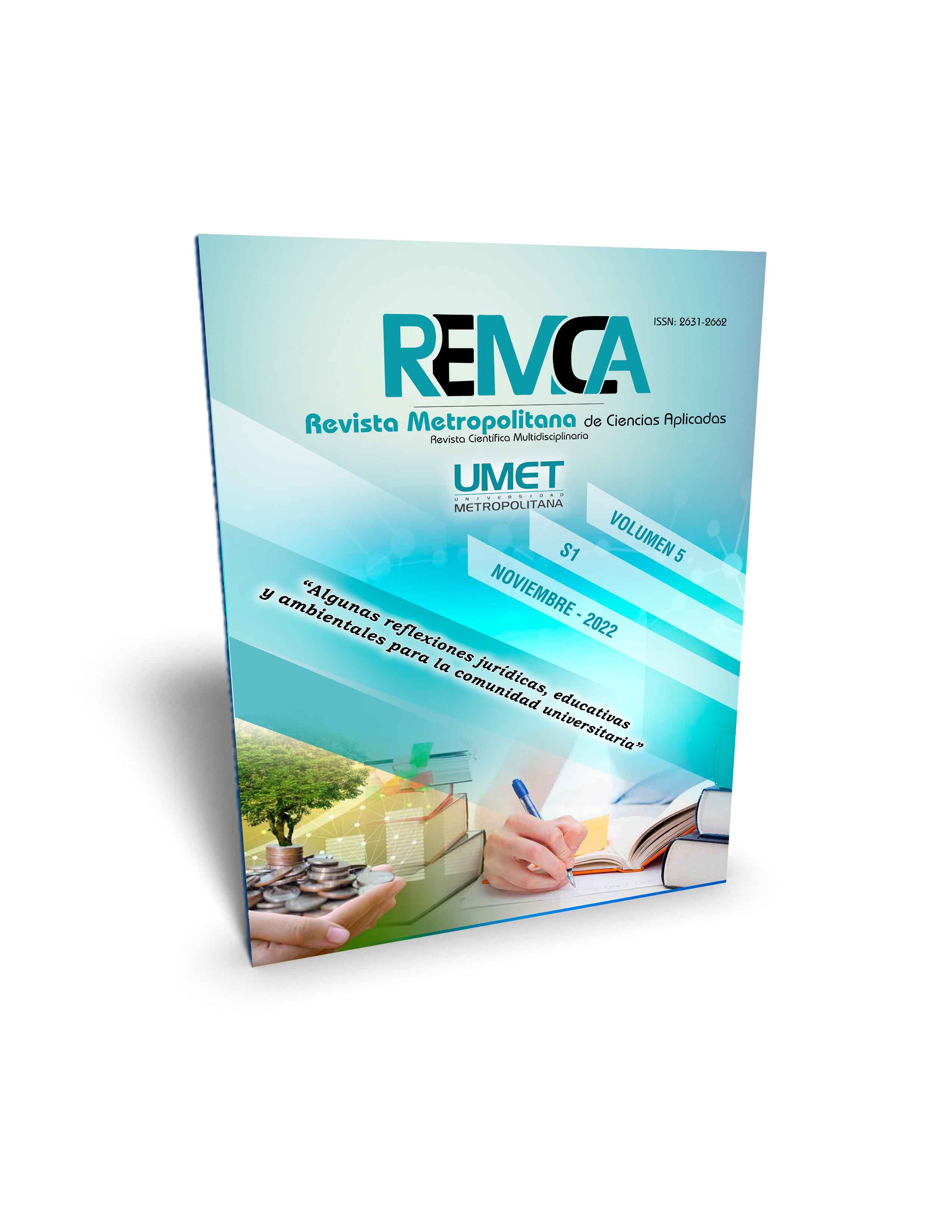Workplace harassment as a cause for the termination of the employment relationship in Ecuador
DOI:
https://doi.org/10.62452/9xwk7f63Keywords:
Workplace harassment, law, psychosocial risk, employment relationshipAbstract
Ecuadorian legislation, as of 2017, recognizes for the first time the legal figure of workplace harassment, through the Organic Law Reforming the Organic Law of Public Service and the Labor Code to prevent Workplace Harassment. Although there were already regulations that prohibit ill-treatment and guarantee the right to a healthy work environment, the relevance of this figure lies in the fact that it is currently considered an eminent psychosocial risk; and, there is already a general regulatory framework that regulates the private and public spheres to prevent and deal with these acts that threaten the integrity and health of workers. The objective of this research is to analyze workplace harassment as a cause for the termination of the employment relationship, the complaint procedure before the Labor Inspectorate and its legal effects. This qualitative research uses the inductive - deductive method and will allow to focus from reality, the application of national regulations and their effects regarding the employment relationship.
Downloads
References
Arévalo Vela, J. (2021). El contrato de trabajo en la legislación peruana vigente. Revista De Derecho Procesal Del Trabajo, 3(3), 13-55.
Cairós Barreto. D. (2001). Contrato de mediación laboral y contrato de agencia mercantil: un estudio sobre el objeto del contrato de trabajo. (Tesis Doctoral). Universidad de La Laguna.
Ecuador. Asamblea Nacional Constituyente. (2008). Constitución de la República del Ecuador. Registro Oficial 449. https://www.oas.org/juridico/pdfs/mesicic4_ecu_const.pdf
Ecuador. Asamblea Nacional. (2015). Código Orgánico General de Procesos. Registro Oficial Suplemento 506. https://www.telecomunicaciones.gob.ec/wp-content/uploads/2018/09/Codigo-Org%C3%A1nico-General-de-Procesos.pdf
Ecuador. Asamblea Nacional. (2017). Ley Orgánica Reformatoria a la Ley Orgánica del Servicio Público y al Código del Trabajo para prevenir el Acoso Laboral.. Suplemento del Registro Oficial No. 116. https://biblioteca.defensoria.gob.ec/bitstream/37000/2010/1/33.%20Ley%20Org%C3%A1nica%20Reformatoria%20para%20prevenir%20el%20Acoso%20Laboral.pdf
Ecuador. Congreso Nacional. (2005). Código del Trabajo Ecuador. Registro Oficial Suplemento 167. https://www.trabajo.gob.ec/wp-content/uploads/downloads/2012/11/C%C3%B3digo-de-Tabajo-PDF.pdf
Ecuador. Ministerio de Trabajo. (2021). Protocolo de prevención y atención de casos de discriminación, acoso laboral y/o toda forma de violencia contra la mujer en los espacios de trabajo. https://www.igualdadgenero.gob.ec/wp-content/uploads/downloads/2021/06/Protocolo-de-Prevenci%C3%B3n-casos-de-violencia.pdf
Irureta, P. (2014). La noción jurídica de empleador ante el derecho del trabajo. Revista de Derecho (Valparaíso), 42.
Lasso, G. (2021). Decreto ejecutivo 123 de 2021. Presidencia de la República del Ecuador. https://www.fielweb.com/App_Themes/InformacionInteres/Decreto_Ejecutivo_No._123_20210616191047.pdf
Leymann, H. (1996). The content and development of mobbing at work. European Journal of Work and Organizational Psychology, 5(2), 165-184.
Organización Internacional del Trabajo. (2019). Convenio sobre la violencia y el acoso Nro. 190. https://www.ilo.org/dyn/normlex/es/f?p=NORMLEXPUB:12100:0::NO::P12100_ILO_CODE:C190
Pacheco, L. (2012). Los elementos esenciales del contrato de trabajo. Revista de Derecho, 13, 29-54.
Pérez Meza, D. (2019). El Acoso Laboral o Mobbing Laboral. Revista Estado de Derecho, 1(2), 4- 24.
Rodríguez-Sarmiento, I. T., Erazo-Álvarez, J. C., Borja-Pozo, C. A., & Narváez-Zurita, C. I. (2020). Procedimiento administrativo de visto bueno: Enfoque Constitucional a la seguridad jurídica y al debido proceso. Iustitia Socialis. Revista Arbitrada de Ciencias Jurídicas y Criminalísticas, 5(1).
Suárez, W. (2017). De la subordinación a la cooperación laboral: una alternativa desde el igualitarismo constitucional. Revista Jurídica Mario Alario D’Filippo, 9(17), 12-32.
Toyama Miyagusuku, J. (2005). Instituciones del Derecho Laboral. Gaceta Jurídica.
Downloads
Published
Issue
Section
License
Copyright (c) 2022 Yajaira Vanessa Arce Torres (Autor/a)

This work is licensed under a Creative Commons Attribution-NonCommercial-ShareAlike 4.0 International License.
Authors who publish in Revista Metropolitana de Ciencias Aplicadas (REMCA), agree to the following terms:
1. Copyright
Authors retain unrestricted copyright to their work. Authors grant the journal the right of first publication. To this end, they assign the journal non-exclusive exploitation rights (reproduction, distribution, public communication, and transformation). Authors may enter into additional agreements for the non-exclusive distribution of the version of the work published in the journal, provided that acknowledgment of its initial publication in this journal is given.
© The authors.
2. License
The articles are published in the journal under the Creative Commons Attribution-NonCommercial-ShareAlike 4.0 International License (CC BY-NC-SA 4.0). The terms can be found at: https://creativecommons.org/licenses/by-nc-sa/4.0/deed.en
This license allows:
- Sharing: Copying and redistributing the material in any medium or format.
- Adapting: Remixing, transforming, and building upon the material.
Under the following terms:
- Attribution: You must give appropriate credit, provide a link to the license, and indicate if any changes were made. You may do this in any reasonable manner, but not in any way that suggests the licensor endorses or sponsors your use.
- NonCommercial: You may not use the material for commercial purposes.
- ShareAlike: If you remix, transform, or build upon the material, you must distribute your creation under the same license as the original work.
There are no additional restrictions. You may not apply legal terms or technological measures that legally restrict others from doing anything the license permits.




